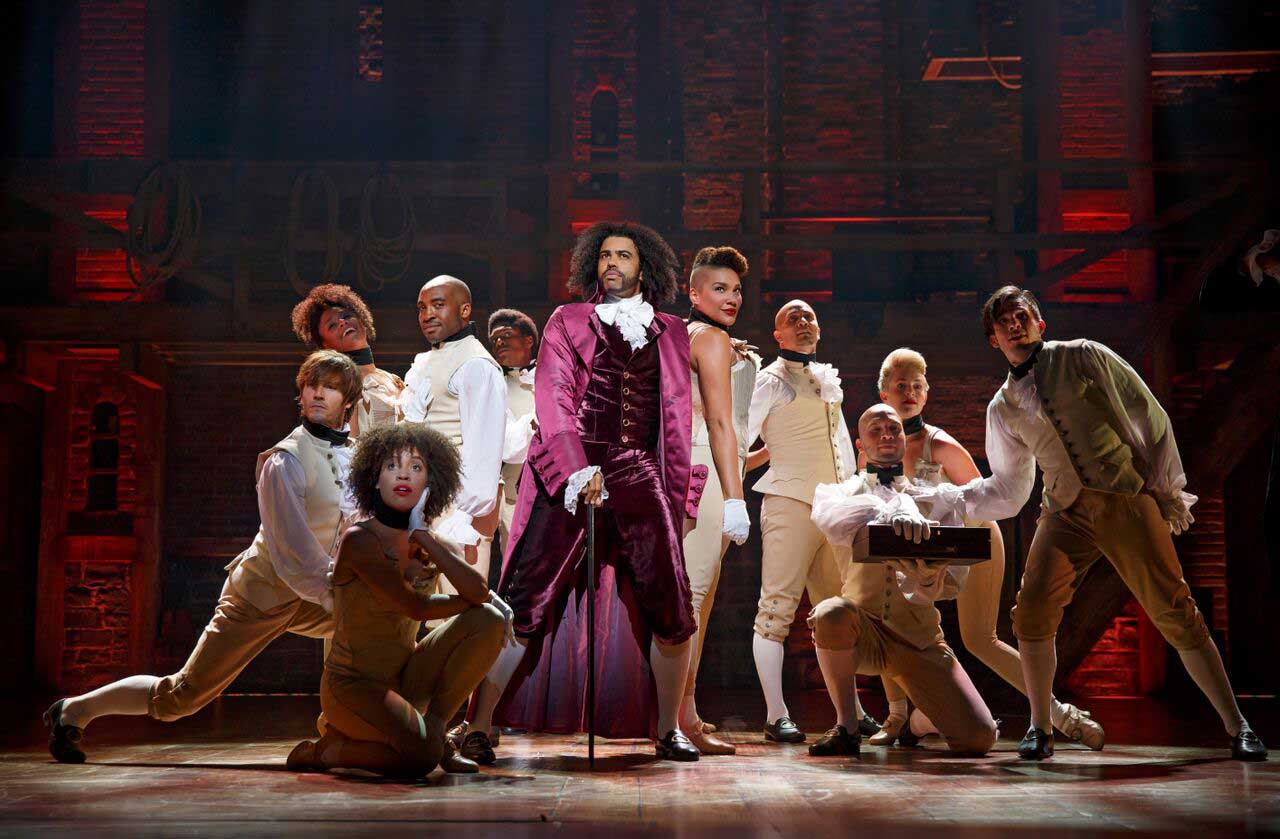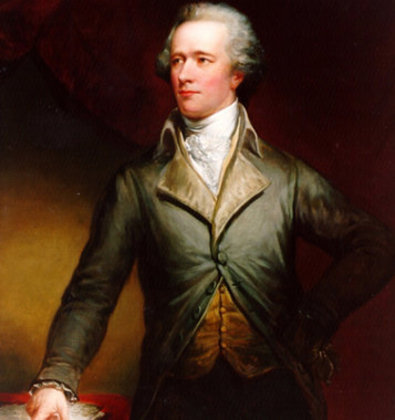Of course Hamilton the founding father was racist; the question is whether the musical is. Historian Lyra Monteiro makes the case for thinking so. She argues that casting back actors in the role of the white founding fathers is a way to erase said founding fathers racism, as well as the narratives of actual black people who lived at the time.
I don’t have a strong opinion one way or the other…mainly because I still haven’t seen the musical. I did read the Ron Chernow Hamilton biography on which the musical is based, though. So when a friend posted the link on Facebook and asked for comment I weighed in. I thought I’d reprint my thoughts here (with a little editing and tweaking), in case readers were interested.
_________
It sounds like Monteiro makes good points; the biography pushes pretty hard on the idea that Hamilton was anti-slavery. he seems to have been in abolitionist societies, and didn’t own slaves himself. It wasn’t at the center of his politics though, probably.
I don’t know if the musical talks about this, and Monteiro doesn’t, but Hamilton was racialized himself, at least sometimes. We don’t really know who his father was, and given his childhood in the Caribbean, there’s a non-negligible chance that he was part black. His enemies certainly made much of the fact that he might be part black; he was referred to as a Creole on more than one occasion, and attacked as a foreigner, which I think then (as now) had some racial overtones.
So you could see Hamilton’s story as being about the possibility of black assimilation, which is in part what it sounds like the musical’s about too—black people claiming the Founding Father’s story as their own. The problem is that of course black people haven’t been allowed to assimilate, really, and that Hamilton’s assimilation is contingent on him not having been black (he certainly didn’t live as a black man in America.) And similarly the assimilation of the cast to the Hamilton story means losing blackness as a historical phenomenon, at least to some great degree.
So…the politics of it sort of depend on the politics of assimilation, which seem like they’re fairly complicated. On the one hand, racism in the US is in large part about black people not being allowed to assimilate. On the other hand, assimilating to whiteness means identifying with the oppressor, which is arguably also racist. The alternative would be telling a story about the oppressed—but of course many black commenters have talked about how sick they are of seeing black people only in the role of the oppressed, because it’s dreary and disempowering to constantly be portrayed as dreary and disempowered.
To me, overall, it seems like Hamilton the musical offers a kind of representation that isn’t often seen in the media—that is, black performers explicitly playing white people, rather than playing roles in which their blackness isn’t supposed to be recognized or acknowledged (which happens quite often.) Monteiro makes a good case that this representation isn’t perfect, but no one representation is going to be perfect, and more representations, more kinds of representations, and more jobs for black actors all seem like good things.


